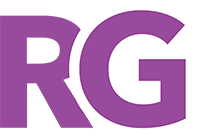By far one of the most challenging aspects of running your own business is dealing with the financial side of things. This is particularly true if you are just starting out into the world of self-employment and are finding the financial jargon pretty baffling!
As a freelancer I am forever being told how lucky I am not to be paying tax on my earnings each and every month. However, whilst I don’t miss those regular deductions, any freelancer, myself included, will tell you that dealing with taxes, as a freelancer is no easier!
To allow those who work independently to make more regular tax payments, HMRC brought in the payment on account system, which by and large ensures that they receive tax more regularly!
Don’t worry; if you are finding yourself frantically searching Google off the back of reading this intro, you have come to the right place. From one freelancer to another, here is all you need to know about payment on account systems, and whether or not you have to pay it as a self-employed worker.
What Is a Payment On Account System?
Having your financial affairs in order is a vital part of freelancing, so HMRC kindly implemented the payment on account system so that those working as a sole trader, freelancer or contractor could spread out their tax bill across the year.
Whilst in theory this sounds fantastic, the reality can be very different for those starting out on their own. With many freelancers being completely unaware of the payment on account system, it is often the case that come January 31st, there is a hefty tax bill arriving at the door that was entirely unexpected and unplanned for.
How Does a Payment On Account System Work?
If you are self-employed, then you will likely be subject to the payment on account system. With the idea being that you can manage your taxes easier across the year instead of all at once. HMRC essentially split your tax bill across two payments, which are expected on 31st January and 31st July each year.
Payment on account will apply to anyone who is self-employed, however if you fit under one of the following criteria then you will be exempt from the Payment on account system.
- You earn less than £1000
- If you are still under employment and more than 80% of your overall earning are subject to PAYE, then you will not need to deal with the payment on account system.
The system works by calculating what tax you will owe in the following year, based on the tax you paid in your previous year.
So let’s say in your first year of business you paid £2000 of tax. HMRC will estimate that during the next year you will earn the same, and therefore pay the same in tax. Under the payment on account scheme you will be expected to pay your tax bill of £2000 over two instalments, unless of course the above criteria applies to that financial year.
Why You Need To Be Aware Of The Payment On Account System
Although payment on account was designed to assist self-employed individuals to evenly spread their tax bill across a year, it has been the cause of much financial upset for those who weren’t aware of it (which is a surprising amount of people!)
Whilst things will certainly get easier once that first hurdle is crossed, it is important that those who are new to the freelance industry are aware of what is required. Failure to pay the full amounts off your payment on account may result in interest and penalties, so it certainly pays to educate yourself on the matter from the off.
As explained, the first financial year of business will be the most difficult, as your first instalment for next years tax bill will be due on the 31st January, which is the same date that your previous tax bill is due. This often means a bill that is around 50% more than you expected, and can often lead to difficulties in paying! After this first year has passed your tax should evenly balance across the year making it much easier to manage, think of it as an advanced payment on your tax bill!
There are things you can do to avoid facing any hefty interest or fines, and the main one is to fill in that self-assessment as soon as possible! By knowing what you owe early on, you give yourself a much longer time to prepare and save, meaning that come January you will be primed and ready!
You can also contact HMRC if you feel your tax bill will be less than the previous year. We all go through tough spots in business, and HMRC should alter your payment on account amount based on your information. However make sure that the figures you provide are accurate, because if you underpay you may face interest and penalties – so make sure you are making sound predictions!
Final Thoughts
Payment on account is one of the least talked about aspects of working for yourself, and it can be one of the most expensive if you are not aware of it!
Personally, I appreciate getting ahead with my tax payments now that I am years down the line. However for those that are new to the industry, it can certainly pay off to prepare in advance.
Ensuring you are on time with self-assessment and put regular pots of money away into savings will ensure you have nothing to worry about come January and July!
